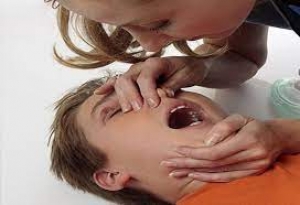Researchers caution against adding salt to foods, say it can reduce life expectancy, cause death
Researchers at Tulane University, United States, have cautioned against adding extra salt to food at the table, noting that it could increase the risk of untimely death and lower life expectancy. The researchers made the call in a recent study they conducted.
The study, published in the European Heart Journal, found that those who continuously added salt to their food had a 28 per cent higher risk of dying too early, in comparison with those who never or hardly added salt.
Frozen sperm effective as fresh sperm –Fertility expert
President, Academy of Medicine Specialties and Secretary-General of the International Federation of Fertility Societies, Prof Oladapo Ashiru, says there are no significant differences between fresh sperm and frozen sperm used for Assisted Reproductive Technology.
Prof Ashiru said frozen sperm would not interfere with the fertilisation and clinical pregnancy rates. He said with intrauterine insemination and in vitro fertilisation, one has a better chance of clearing hurdles along the path to pregnancy.
Starvation in pregnancy dangerous, could cause placenta dysfunction, others —Gynaecologist
A Consultant Obstetrician and Gynaecologist, Dr. Lateef Akinola, has urged pregnant women to avoid acute starvation, noting that it puts them at risk of severe vomiting, placenta dysfunctions, and respiratory distress. According to him, acute starvation in pregnancy could also lead to poor pregnancy outcomes.
Dr. Akinola stated further that women experiencing acute starvation in pregnancy might also experience foetal growth restrictions, stillbirths, and increased newborn foetal morbidity/mortality, adding that they are also more prone to maternal preeclampsia and gestational diabetes.
Infertility, miscarriage, may increase stroke risk in women —Study
A new study has indicated that women who have experienced infertility, recurrent miscarriage, and loss of a baby before or during birth could be at a higher risk of stroke. According to the researchers, early monitoring of these women, as well as healthy lifestyle changes, could lessen the risk of stroke.
The researchers conducted the study using data from eight studies from seven countries namely; Australia, China, Japan, Netherlands, Sweden, the United Kingdom, and the United States. The researchers analysed the data from the InterLACE consortium which was established in June 2012 and provides pooled individual-level data on reproductive health and chronic disease.
Putting spoon, concoction in mouth of convulsing children can cause low blood sugar, death, paediatrician warns
A Consultant Paediatrician at the Nephrology Division, Federal Teaching Hospital, Katsina, Dr. Abdurrazzaq Alege, has cautioned parents against engaging in harmful practices and interventions when their children have a febrile convulsion.
According to him, putting a spoon, hand, cow urine concoction, and rags in the mouth of a convulsing baby could cause more problems for the child. Such harmful practices, he warned, could even result in the death of the child.
Eating processed meat, fried foods could increase cancer risk —Experts
Health experts have urged Nigerians to reduce their consumption of processed meat and fried foods, noting that eating too much of such foods could increase the risk of cancer. According to the experts, some of these foods contain carcinogens which are compounds that cause cancer, adding that several studies have found links between processed meat and various forms of cancer.
Speaking in an interview with PUNCH Healthwise, the assistant Chief Dietitian and former National Publicity Secretary, Nutrition Society of Nigeria, Olusola Malomo, said high consumption of red and processed meat can increases the chance of getting bowel cancer to 18 per cent.
Why many people with misaligned teeth have mouth odour –Oral physician
Consultant oral physician at the University of Nigeria Teaching Hospital, Ituku/Ozalla, Enugu State, Dr. Otakhoigbogie Uwaila, tells Emmanuel Ojo the causes, management, and social effects of halitosis, commonly known as bad breath
What is halitosis?
Halitosis, popularly known as bad breath, is an offensive odour from the mouth when someone speaks or the breath that individuals exhale. Simply put, it is bad breath or odour from the mouth or oral cavity. It is what people generally refer to as a smelly mouth. That’s what halitosis is all about.
Don’t drink alcohol while taking medications, pharmacist tells Nigerians
A former National Chairman of the Association of Community Pharmacists of Nigeria, Dr. Samuel Adekola, has urged Nigerians to stay away from alcohol while on medication. He noted that drinking alcohol while on medication will alter the potency of the drugs and even worsen their side effects.
Adekola stated that most patients do not consider the possibility of alcohol interacting with medications, warning that such interaction could even result in the damage of vital organs of metabolism such as the liver and the kidneys.
Lagos releases guidelines on abortion
The Lagos State Government through the Ministry of Health has unveiled a policy document on safe termination of pregnancy. The 40-page policy document, tagged “Lagos State Guidelines on Safe Termination of Pregnancy for Legal Indications”, sets out guidelines for safe termination of pregnancy within the ambit of the criminal law of Lagos State.
Presenting and launching the document at a stakeholders’ engagement, the Permanent Secretary, Lagos State Ministry of Health, Dr. Olusegun Ogboye, explained that while therapeutic termination of pregnancy is permissible under the law in Lagos State.
NCDC confirms 62 monkeypox cases in 19 states
The Nigeria Centre for Disease Control has said that 62 cases of monkeypox have been confirmed in the country. The NCDC disclosed this in its latest monkeypox situation report released on Tuesday.
The World Health Organisation says monkeypox is a viral zoonosis (a virus transmitted to humans from animals) with symptoms very similar to those seen in the past in smallpox patients, although it is clinically less severe.



















